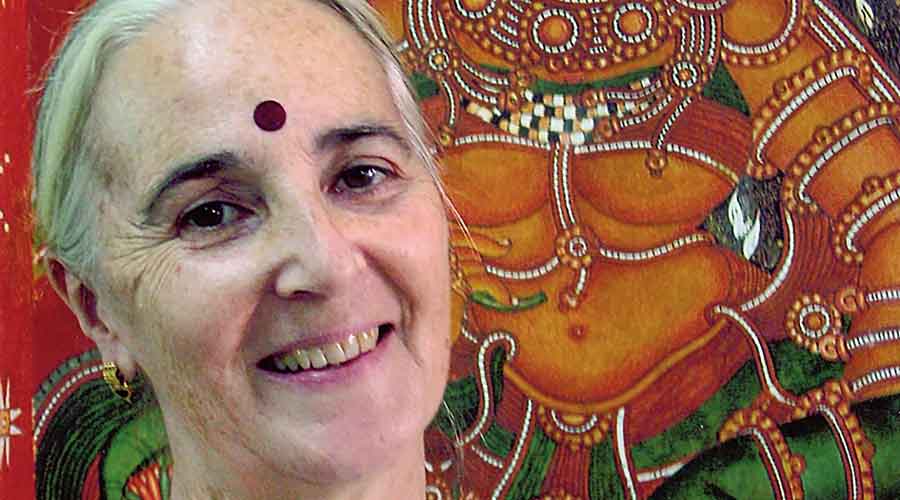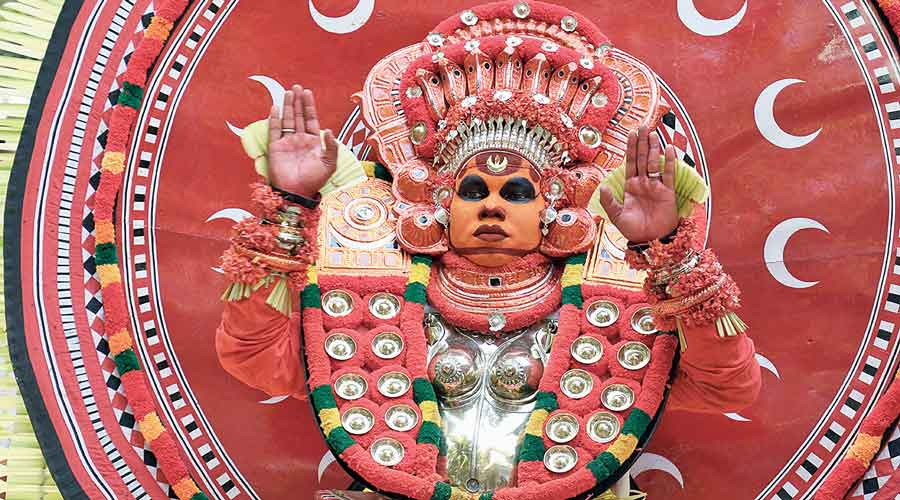Pepita Seth, the British-born writer and photographer, has spent 40 years of her life lovingly documenting with rigour, and in meticulous detail, the “powerful universe” of the Guruvayur temple and that of the families that perform the Theyyam rituals in Kerala through her words, images and extensive lectures on the subject in India, the US, Britain and Europe.
Seth is one of three people to be awarded the Burton Medal by the Royal Asiatic Society this year.
Seth, who first visited the town of Thrissur in 1972 and now lives there, said in a telephone interview that she was “amazed” and “surprised” that someone who left school at 15 had been deemed worthy of the prestigious award.
But Seth, who was awarded the Padma Shri in 2012, is also saddened at the crass commercialisation of the Theyyam rituals under the relentless pressure of the tourism industry. She bemoans the loss of traditions and the growing disconnect with culture itself.
Seth was born in wartime London in 1942. She was brought up on a farm in Suffolk by parents who didn’t have much faith in the benefits of higher education. But they were from a “good family”, she says, laughing at the obsolescence of such notions.
In 1968 she discovered the diary of her great-grandfather, Leonard Howard Lloyd Irby, detailing his role as a soldier on the 1857 march from Calcutta to Lucknow along the Grand Trunk Road.

Pepita Seth. The Telegraph
He and his regiment had been shipwrecked near Diamond Harbour while he was on his way on the HMS Transit to join the Opium Wars in China. Inspired by his experiences she decided, in 1970, to retrace his journey.
A nervous Seth flew from London to India and became excited when she saw an elephant on the Grand Trunk Road. As a child she didn’t have a doll or a teddy bear, but had a stuffed elephant instead. It was named Quink (an ink brand) because ink had been upset on it. That explains her obsession with elephants and her famous photograph of the magnificent Guruvayur Kesavan, a temple elephant.
“Basically, India took over” thereafter. She went to Kerala because of the elephants and was first taken to Guruvayur. She was initially interested in photographing the elephants that carried the idols of the deities during temple festivals without the fear of “pollution”.
She used a Nikon, her only concern being, “Does it work?”
While it is true that non-Hindus are not allowed inside the Guruvayur temple, in her case the Chennas Namboodiripad family managing the religious side of the temple allowed her to enter in 1972 and she continues to do so to worship.
Her book, Heaven on Earth: The Universe of Kerala’s Guruvayur Temple, was published in 2008.
“They were not taking chances,” she said. She continued to go to the temple even after completing the book in seven years, checking and cross-checking every detail in her “abominable” Malayalam. Her thoroughness became a joke in the temple.
After completing her Guruvayur book she returned to Malabar and to a book on the Theyyam, living with the ritual’s practitioners.
Titled In God’s Mirror; the Theyyams of Malabar, it is slated to be published late next year. In the ritual of Theyyam, the dancer is a conduit of the deity from whom worshippers seek blessings.
Initially, Seth held an exhibition of photographs of the ritual, but they wanted her to do a book. “They want people to understand what Theyyam is. ‘You tell the truth,’ they said,” Seth said.
“These people are highly sophisticated with vast learning and knowledge. The rituals are so complex, a week was spent on explaining the significance of why the performer circumambulates a shrine nine times.”
Unable to leave Thrissur because of the pandemic, Seth goes to the temple.
“I don’t miss my own kind,” Seth remarks. And if she swoons and doesn’t wake up to the rousing beat of the chendas (drums) she is sure to be dead.











